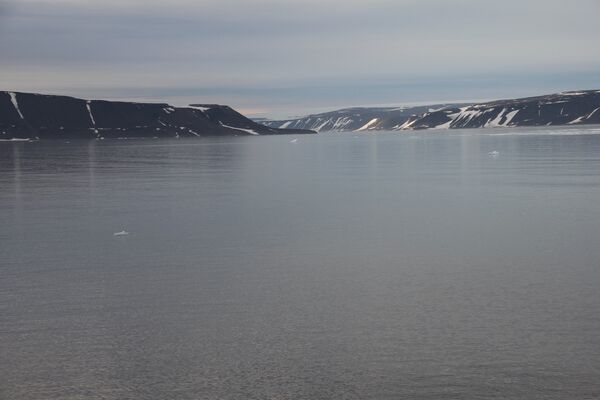A group of Russian and U.S. scientists will leave the port of Vladivostok on Friday on board a Russian research ship to study methane emissions in the eastern part of the Arctic.
"This expedition was organized on a short notice by the Russian Fund of Fundamental Research and the U.S. National Science Foundation following the discovery of a dramatic increase in the leakage of methane gas from the seabed in the eastern part of the Arctic, said Professor Igor Semiletov, the head of the expedition.
The group consists of 27 scientists who would attempt to measure the scale of methane emissions and clarify the nature of the process.
The 45-day expedition will focus on the sea shelf of the Laptev Sea, the East Siberian Sea and the Russian part of the Chukotsk Sea, where 90% of underwater permafrost is located.
"We assume that the leakage of methane results from the degradation of underwater permafrost...A massive release of such a powerful greenhouse gas may accelerate global warming," Semiletov said.
Methane is about 20 times more potent than CO2 in trapping solar heat.
Professor Semiletov has been studying methane seepage in the region for the last 15 years, and leads the International Siberian Shelf Study (ISSS), which has launched a number of expeditions to the Arctic Ocean.
"The studies are reaching a more serious level. Many Russian and U.S. universities have joined the [ISSS] program bringing in the most advanced equipment which will allow us to study the structure of underwater permafrost with more precision," Semiletov said.


